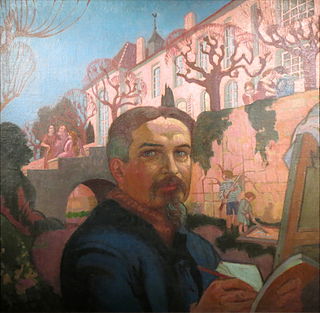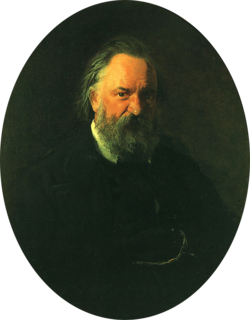A Quote by Samuel Johnson
Affectation naturally counterfeits those excellences which are placed at the greatest distance from possibility of attainment, because, knowing our own defects, we eagerly endeavor to supply them with artificial excellence.
Related Quotes
In the future it's very possible you could have an artificial intelligence system that can run the country better than a human being. Because human beings are naturally selfish. Human beings are naturally after their own interests. We are geared towards pursuing our own desires, but oftentimes, those desires have contrasts to the benefit of society, at large, or against the benefit of the greater good. Whereas, if you have a machine, you will be able to program that machine to, hopefully, benefit the greatest good, and really go after that.
Cities force growth and make men talkative and entertaining, but they make them artificial. What possesses interest for us is thenatural of each, his constitutional excellence. This is forever a surprise, engaging and lovely; we cannot be satiated with knowing it, and about it; and it is this which the conversation with Nature cherishes and guards.
The numerous evils to which individual persons are exposed are due to the defects existing in the persons themselves. We complain and seek relief from our own faults; we suffer from the evils which we, by our own free will, inflict on ourselves and ascribe them to God, who is far from being connected with them!
Education is here placed among the articles of public care, not that it would be proposed to take its ordinary branches out of the hands of private enterprise, which manages so much better all the concerns to which it is equal, but a public institution can alone supply those sciences which, though rarely called for, are yet necessary to complete the circle, all the parts of which contribute to the improvement of the country, and some of them to its preservation.
We learned from Gauguin that every work of art is a transposition, a caricature, a passionate equivalent of a sensation which has been experienced. He freed us from all restraints which the idea of copying naturally placed on our painter's instincts. All artists are now free to express their own personality.
A generation which has passed through the shop has absorbed standards and ambitions which are not of those of spaciousness, and cannot get away from them. Everything with them is done as though for sale, and they naturally have in view the greatest possible benefit, profit and that end of the stuff that will make the best show.
The object of our being placed upon this earth is that we may work out an exaltation, that we may prepare ourselves to go back and dwell with our Heavenly Father; and our Father, knowing the faults and failings of men has given us certain commandments to obey, and if we will examine those requirements and the things that devolve upon us we will find that they are all for our individual benefit and advancement. The school of life in which we are placed and the lessons that are given to us by our Father will make of us exactly what He desires, so that we may be prepared to dwell with Him.
The greatest barrier to own own healing is not the pain, sorrow or violence inflicted upon us as children. Our greatest hindrance is our ongoing capacity to judge, to criticize, and to bring tremendous harm to ourselves. If we can harden our heart against ourselves and meet our most tender feelings with anger and condemnation, we simultaneously armor our heart against the possibility of gentleness, love and healing.






































